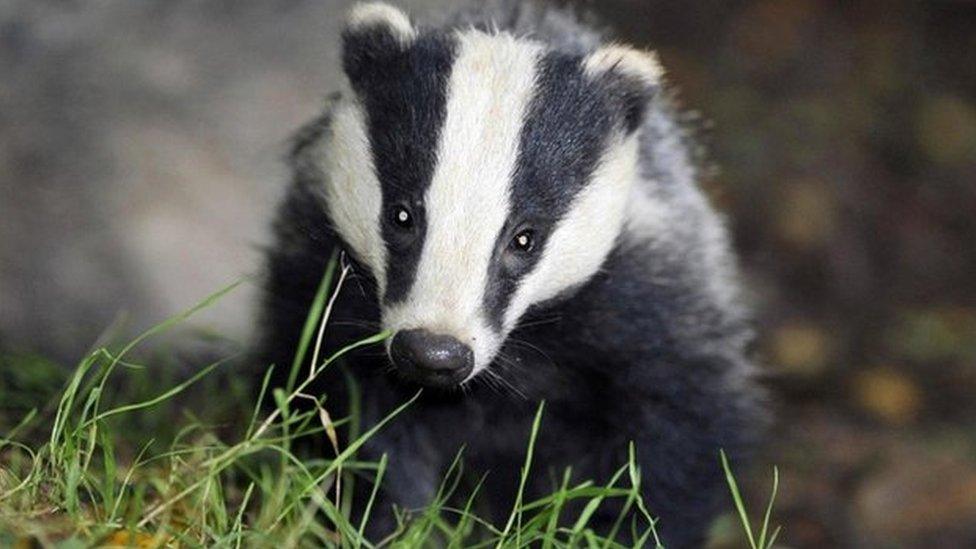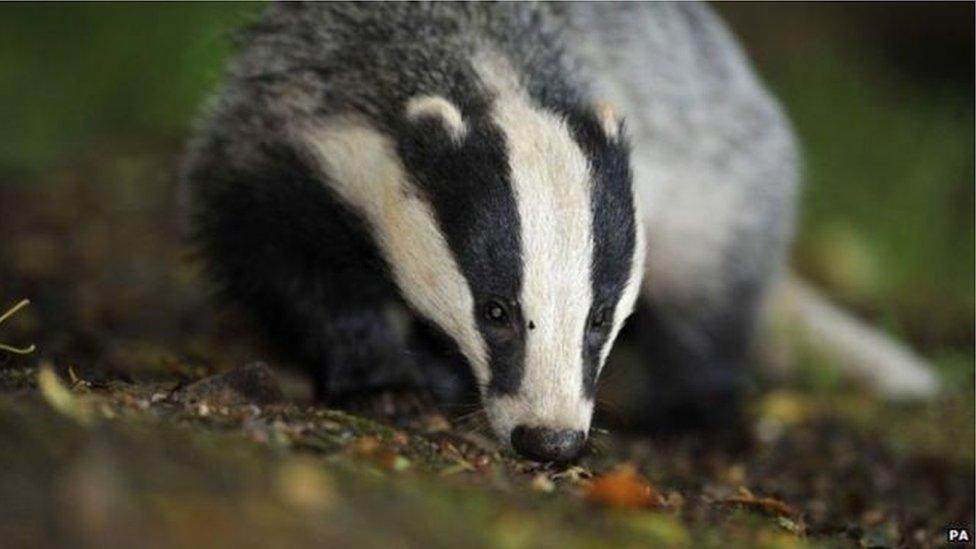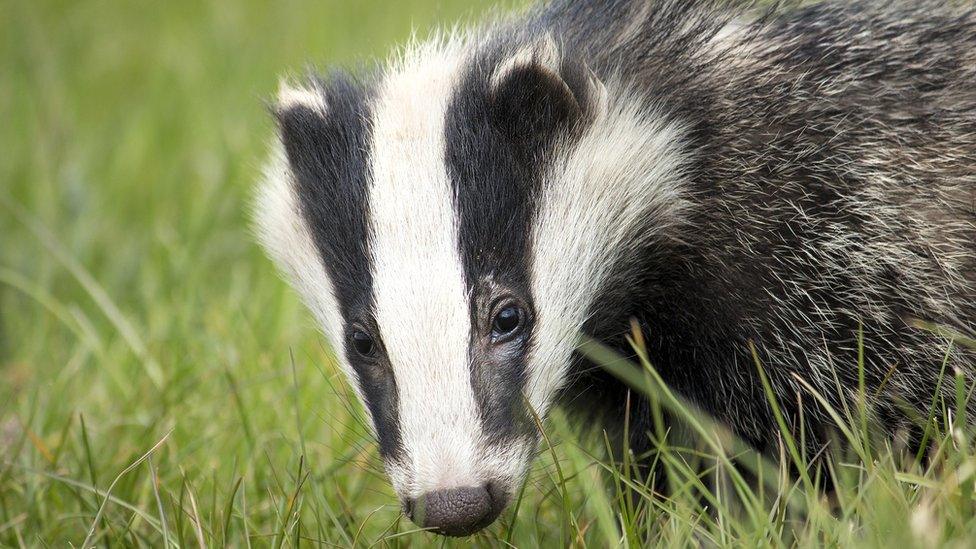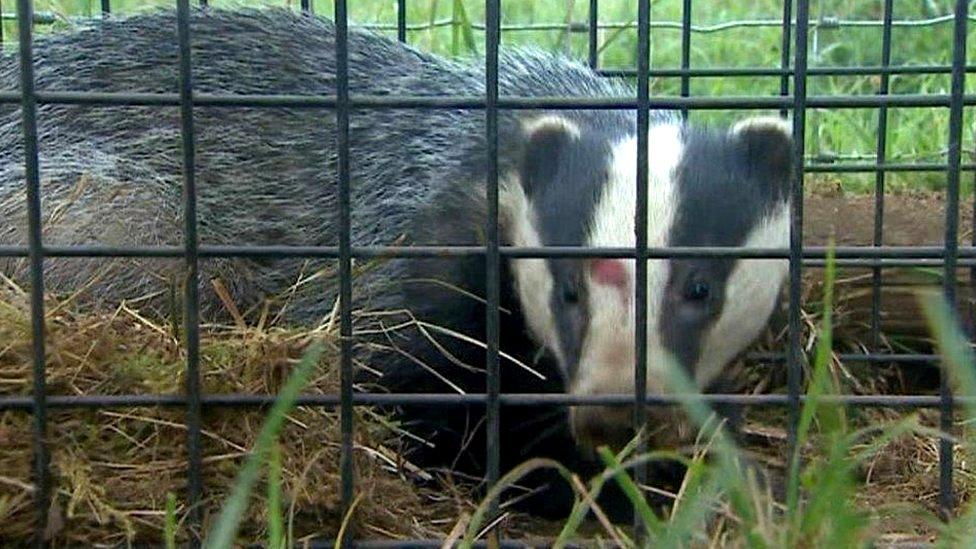Badger cull to be replaced by vaccines in bovine TB fight
- Published

The first cull zones were created in 2013 in Somerset and Gloucestershire
Badger culling to tackle the spread of TB in livestock is to be phased out to be replaced with a cattle vaccine, the government has announced.
Defra, the environment department, said trials of a vaccine will take place over the next five years, and there are plans to vaccinate more badgers.
Opponents of the badger cull have said it is inhumane and ineffective, but the government backed the policy.
The first cull zones were created in 2013 in Somerset and Gloucestershire.
In September, badger culling was extended to 40 areas including Bristol, Cheshire, Devon, Cornwall, Staffordshire, Dorset, Herefordshire and Wiltshire.
Farmers said it was necessary to control the disease that devastates the beef and dairy industries, while the government claimed it had led to reductions in the incidence of TB.
Now Defra plans to gradually phase out "intensive culling" following a breakthrough by the Animal and Plant Health Agency (Apha).
Previously it was not possible to vaccinate cattle as tests for the disease could not differentiate between vaccinated animals and those infected by bovine TB, but Apha has developed an "effective" test which can be trialled alongside the BCG vaccine.

Policy shift or complete U-turn?

Defra is selling the shift to vaccination as the next phase in its policy to eradicate cattle TB. Opponents of the cull are calling it a U-turn.
Animal welfare campaigners believe culling to be cruel and many scientists suspect it may be ineffective and actually increase the spread of the infection in cattle. On the day Defra unveiled its culling policy in 2012 one of its most senior scientific advisors described it as a "crazy scheme".
The department's own independent expert group's review of the first year of the culls concluded that they were ineffective and inhumane and a member of that group told BBC News he believed that the government was "wilfully ignoring the science". Another senior researcher said ministers were using "fake science" to justify the culling policy.
Defra's response was to disband the independent expert group and relax the strict scientific rules that were in place to minimise the spread of infection to cattle from badger movement. They were modified in subsequent culls in order to ensure more badgers were killed. Ministers justified their perseverance with the policy as wanting to use "every tool in the box".
But there has been no clear cut drop in cattle TB since the culls began so Defra has decided to begin to put one of its tools away.

UK Chief Veterinary Officer Christine Middlemiss said Apha's "ground-breaking research" meant it could now start on the "field trials required to license the cattle vaccine and test it".
"Whilst there is no single way to combat this damaging and complex disease, cattle vaccination will be a new tool for our multi-pronged approach to tackle it," she said.
Environment Secretary George Eustice claimed: "The badger cull has led to a significant reduction in the disease as demonstrated by recent academic research and past studies.
"But no-one wants to continue the cull of this protected species indefinitely so, once the weight of disease in wildlife has been addressed, we will accelerate other elements of our strategy, including improved diagnostics and cattle vaccination."
- Published9 September 2019

- Published20 March 2019

- Published10 January 2019
